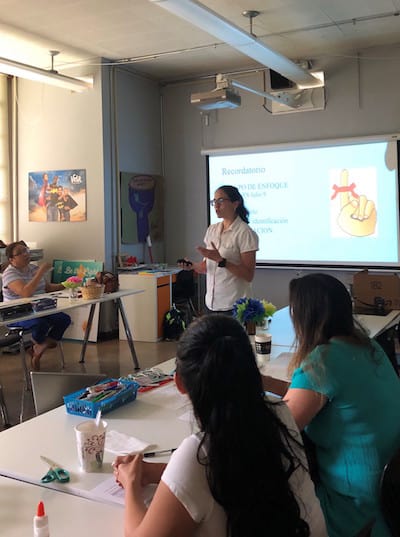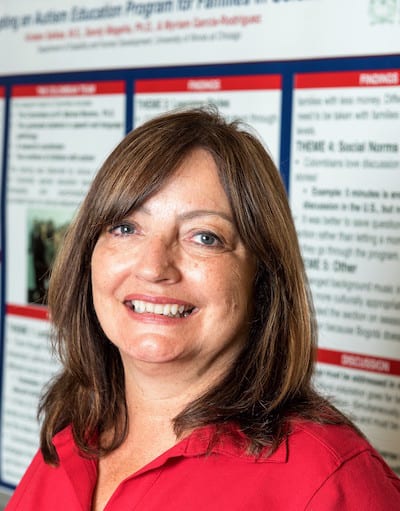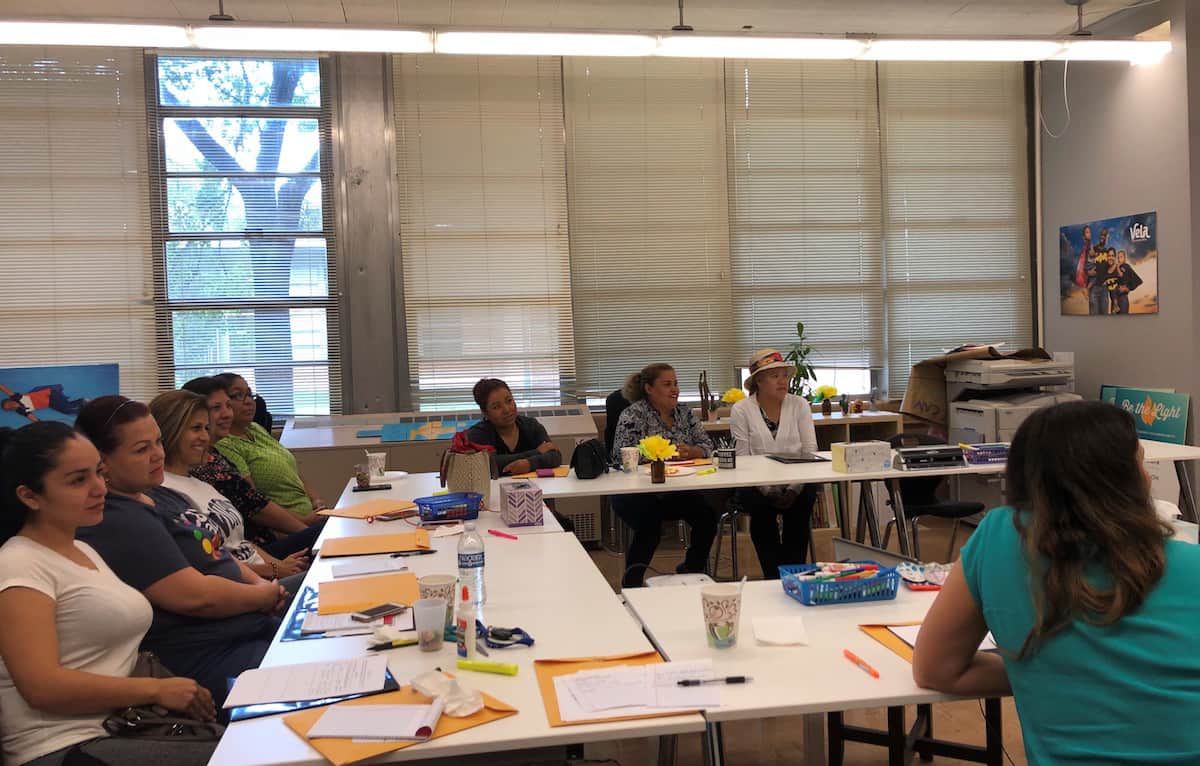Mariana Garcia Torres felt that she was running out of time. It was the last session of a workshop she was conducting in Austin for Spanish-speaking mothers of children with autism, and she still had a lot of material to cover. She asked the women if they needed a break.

“And they all answered at the same time No, sigamos, sigamos. Queremos terminar” [No, let’s go on, let’s go on. We want to finish]. This was exciting for me because it showed how engaged they were, how willing they were to learn, and how much they were enjoying the program,” she said.
Garcia Torres, who is a doctoral student in disability studies at the University of Illinois at Chicago, received the 2018 INSAR Summer Research Internship in Autism Spectrum Disorder and Cultural Diversity to work with Sandy Magaña, the Steve Hicks School of Social Work’s Professor in Autism and Neurodevelopmental Disabilities.
Magaña is the developer of Parents Taking Action, an educational program for Latino parents of children aged 0-8 years old with autism spectrum disorder. Participants in the program receive 14 weeks of home-visits by a health educator or promotora, who uses an interactive approach to deliver content such as autism’s diagnosis, how to talk about it with other people, and strategies to deal with difficult behaviors.
Garcia Torres wants to continue Magaña’s work by developing educational resources for parents of children in the next age group, 8 to 16-year olds. This is an important developmental stage marked by puberty and the many physical and psychological changes it brings, Garcia Torres said.
“Children with autism may not understand the difference between actions that are appropriate to do in public versus private, or what types of touch are appropriate when approaching someone, and other issues like these that become so important during puberty,” she explained. “Parents need to learn how to talk about all these with their kids so that they don’t get into trouble or suffer abuse.”
Through her internship with Magaña in Austin, Garcia Torres adapted materials from Parents taking action and added a whole new unit on puberty to be delivered in a 3-day, group workshop format in Spanish. She tested the program with a group of 13 Latina mothers recruited through VELA, a local nonprofit organization with which Magaña has an ongoing collaboration.
“The mothers in this group are very engaged in the well being of their children, they go to every class about autism they can find. But because most of them are monolingual Spanish speakers, educational opportunities for them in the community are limited,” Garcia Torres said.

During the three-day workshop, the mothers raised questions specific to their child’s needs, shared information with each other, role-played strategies, and received practical information on how to talk with their children about intimate parts, menstruation, and other topics related puberty and sexuality.
“One if the things I emphasized was using anatomical language rather than slang or made-up names because children with autism take everything very literally. It is important to be clear and explicit to make sure there are no misunderstandings,” Garcia Torres said. She added that she was surprised that a few mothers raised the question of how to talk about dating.
“I was expecting this topic to be more frequent in mothers of older kids. But it seems that dating is already happening at this age, so I learned that we need to cover that as well.”
The final step of Garcia Torres’s internship is a focus group with the workshop participants to gain qualitative feedback that will help her refine the educational materials. Ultimately, she hopes to develop a full educational program that she will test in her native country of Colombia.
Magaña said that it is fulfilling to see Garcia Torres building upon Parents Taking Action to meet a need that families themselves have expressed.
“When we conducted the intervention, participant families asked for materials for the next stage of their child’s lives. And they specifically asked for information on puberty and sexuality because this a challenging stage for any youth, but especially for youth with autism and their families.”
By Andrea Campetella. Posted July 15, 2018.


